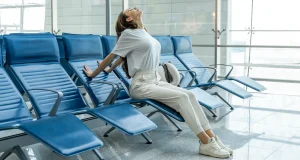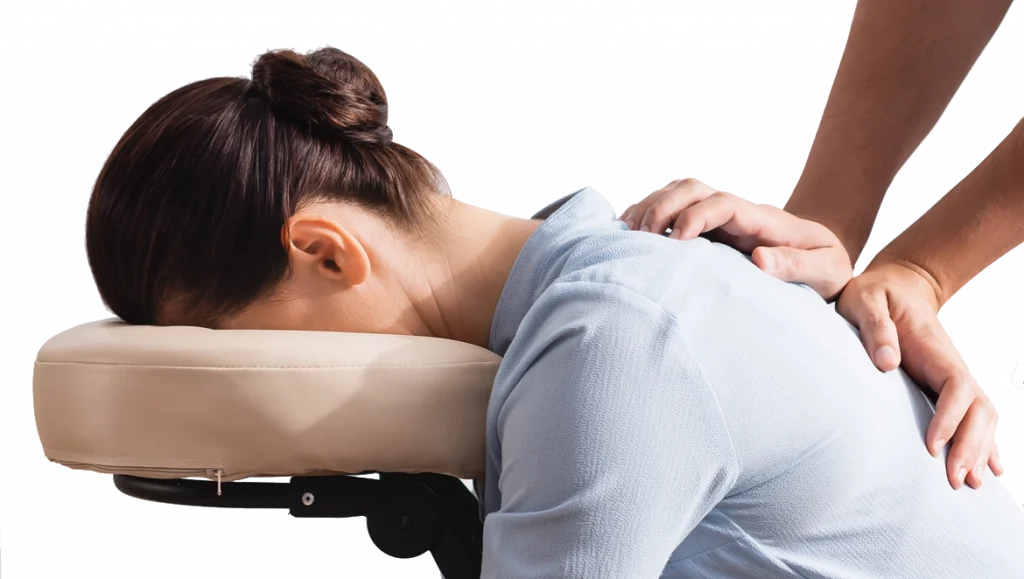TOP TIPS TO MINIMIZE THE IMPACT OF FLYING ON YOUR BODY

As air travel continues to grow, airports and airlines are stepping up to meet this demand with new innovations focused on passenger comfort and wellness. Whether you’re embarking on a short or long trip, these improvements ensure a more enjoyable experience and reduce the flight effects.
Dealing With Pre-boarding Anxiety
Many passengers overlook the impact of airport stress and anxiety. In reality, your travel journey starts the moment you step into the airport — handling heavy luggage, long lines, and crowded security checks. This rush can drain your energy and cause mental and physical fatigue even before boarding worsening potential flight effects.
The best strategy to manage these stressful situations is to plan ahead as much as possible while accepting that not everything can be controlled. Many airports now offer facilities where passengers can relax before their flight, like spas, gaming lounges and indoor gardens. Light activities such as yoga and breathing exercises can do wonders for the body, boosting circulation and clearing the mind. Airport spas are also an excellent option to relieve muscle stiffness and energize the joints.

Hydration is Key
Even with modern aircraft innovations, cabin air quality still raises concerns. While today’s planes are equipped with highly efficient air filters that remove most impurities, germs, and bacteria, humidity levels remain low because much of the air comes from outside at high altitudes. This can dehydrate sensitive areas like the eyes, nose, throat, and skin, causing discomfort. Being one of the main flight effects passengers need to deal with.
To stay hydrated, bring your own water bottle so you are not dependent on onboard service. Electrolyte drinks are another great option to give an easy hydration a boost during the flight. Moisturizers and eye drops can help protect vulnerable areas. Most importantly, avoid alcohol and caffeine, as they can worsen dehydration.

What to Eat Onboard
Digestion naturally slows down when you are inactive, so go for lighter meals to keep your stomach comfortable. During takeoff, the drop in cabin air pressure causes gases to expand — making it a good idea to avoid gas-producing foods such as dairy products, dried fruits, legumes like beans, and high-fiber meals. This will help keep your digestive system in check and avoid unnecessary discomfort and minimize flight effects.

Preventing Swelling
One of the most common complaints during long flights is swelling, especially in the knees and ankles. This happens for the same reasons as swelling during long car rides or extensive office work — but the confined space on an airplane can make it feel worse.
- Walking March: With your hands on your thighs, sit upright and lift one leg at a time as if marching for 20 seconds. Rest briefly and repeat.
- Knee Presses: Press your knees and thighs together, try to engage your glutes. Hold for a few seconds and repeat.
- Calf Raises: Lift your heels and press your toes into the floor, hold, then relax. Next, lift your toes and press your heels down, hold, then relax.
- Neck Rolls: Slowly roll your neck in a circular motion to release shoulder and upper-back tension. Make sure the movement is easy and smooth.
- Shoulder Circles: If you have enough space, extend your arms slightly to the sides and rotate your shoulders forward 10 times, then backward 10 times. Rest briefly and repeat.

Conclusion
Before you fly, be mindful of your body’s condition. If you’re feeling unwell, it might be worth postponing your trip if possible. If not, take extra care — stay hydrated, avoid heavy meals, and skip alcoholic or caffeinated drinks. By following these tips, you can reduce discomfort, prevent fatigue, and enjoy a healthier, more enjoyable travel experience. Don’t forget to visit Be Relax for a relaxing experience before your journey. Follow us on social media for your daily dose of travel and wellness.





